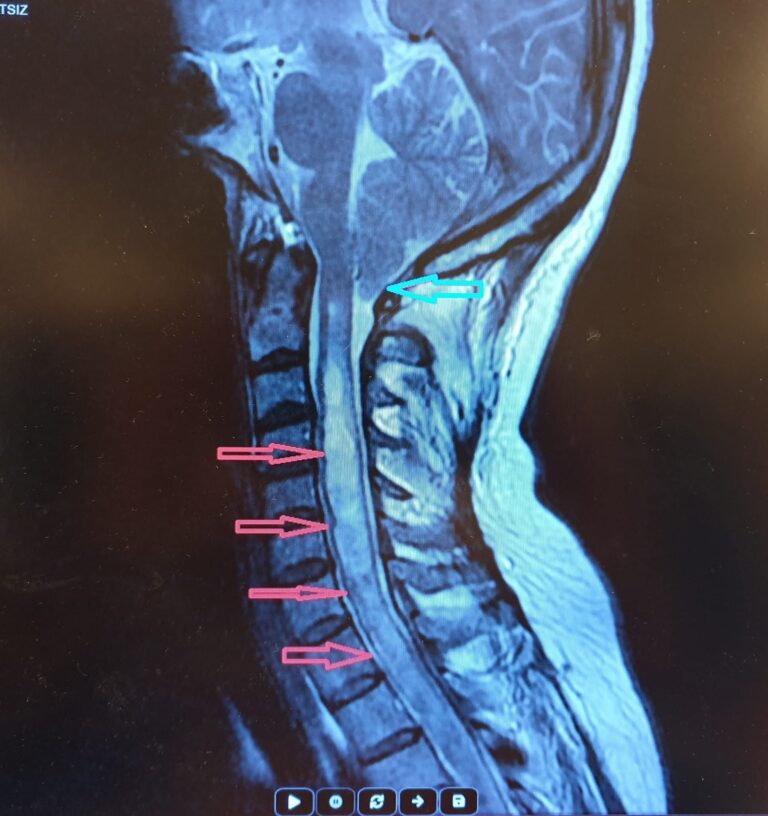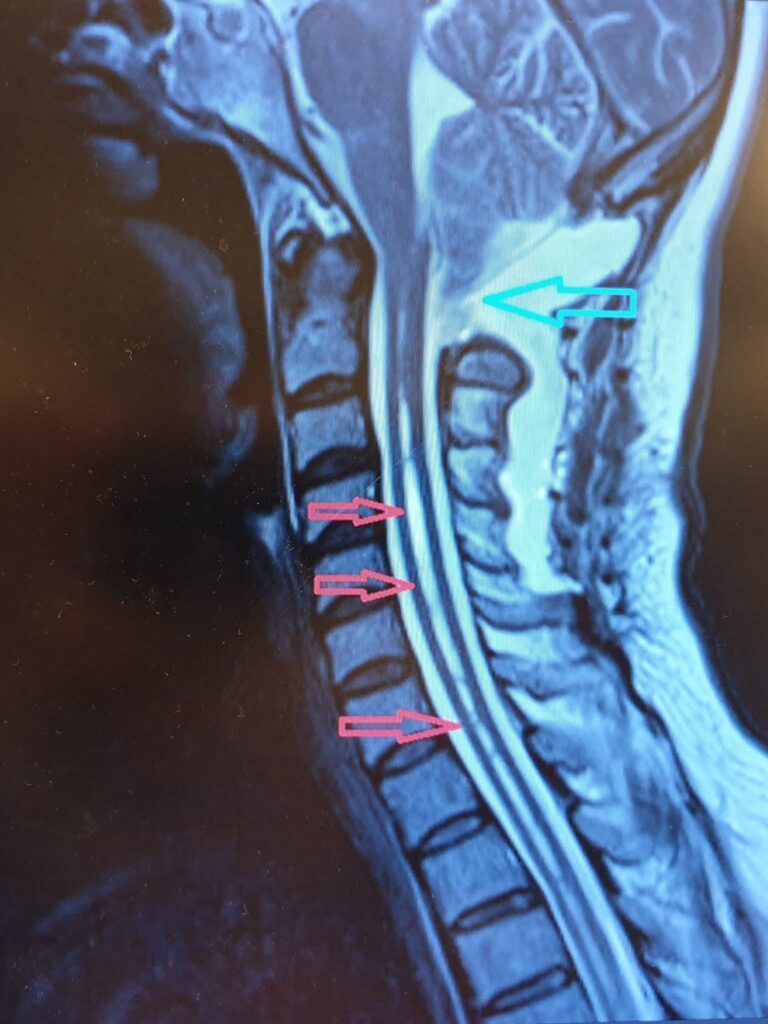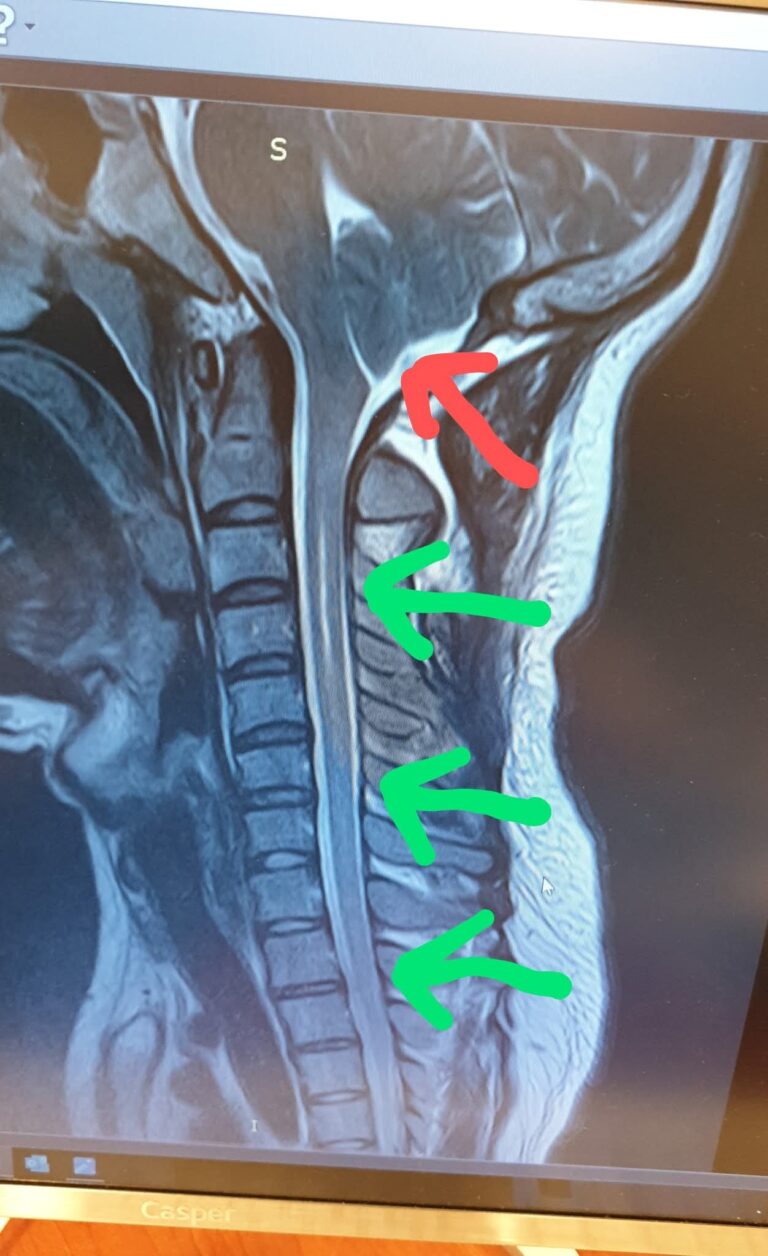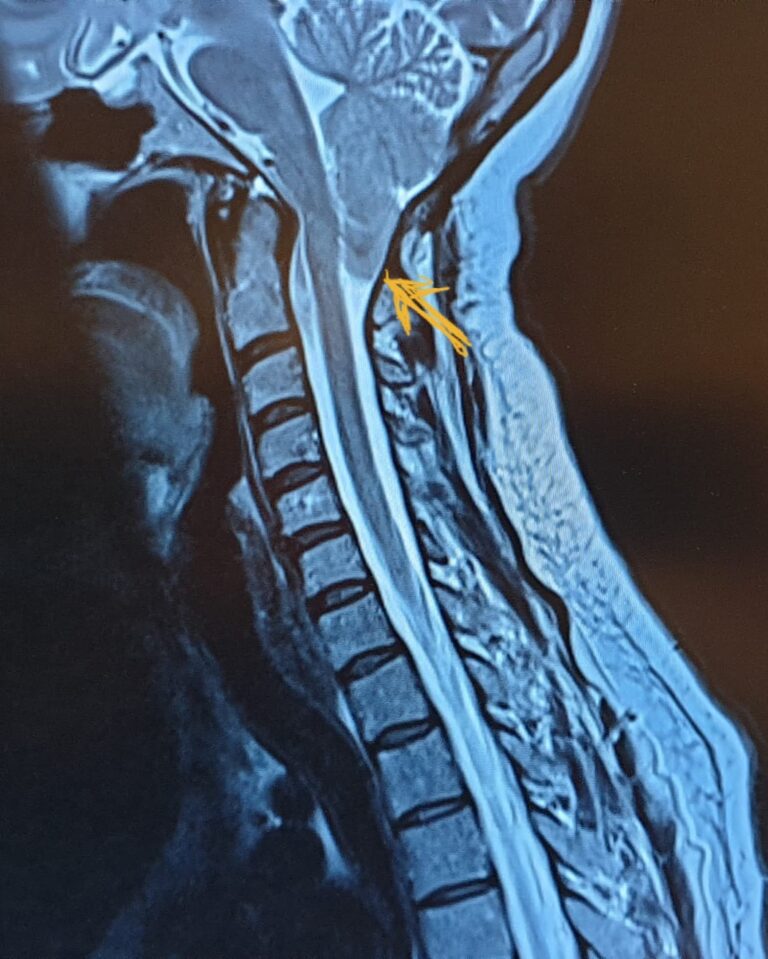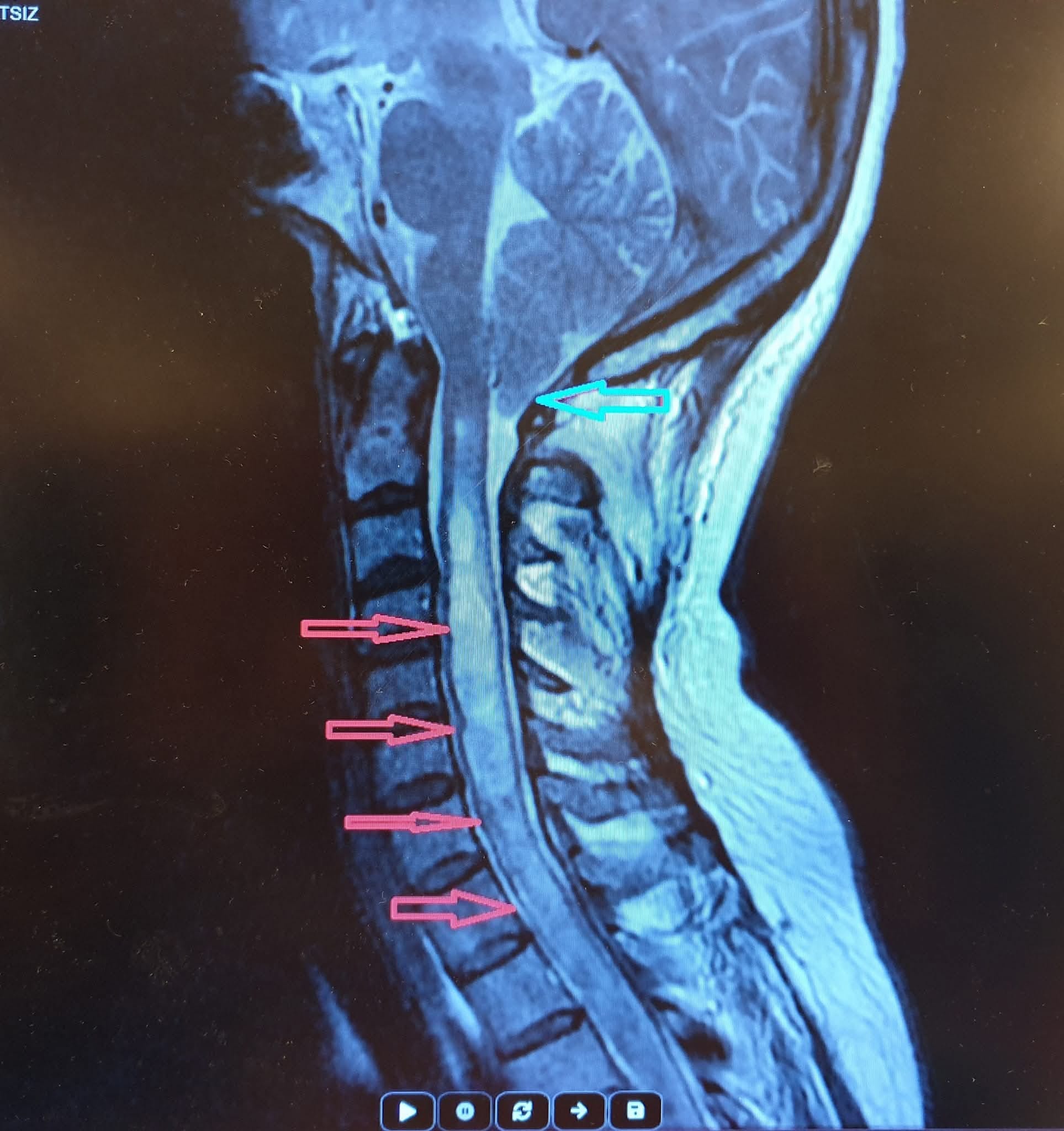
Cerebellar Prolapse
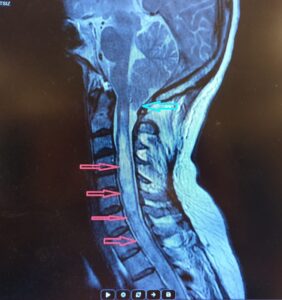
Cerebellar Prolapse (Chiari Malformation)
What is Cerebellar Prolapse (Chiari Malformation)?
Chiari malformation (cerebellar prolapse) is a condition in which some structures of the cerebellum, known as the balance center, herniate into the spinal canal, compressing the brainstem.
Signs and Symptoms
Chiari malformation is usually discovered incidentally. When it progresses, it can cause headaches, balance problems, clumsiness, dizziness, swallowing difficulties, and many other problems in children, particularly those triggered by straining, crying, or laughter.
- Headache triggered by crying, straining, and laughter
- Balance deficits and clumsiness
- dizziness
- Swallowing disorders
- Coordination problems
Treatment Approaches
While follow-up and rehabilitation are the primary treatment options for early-stage cases, surgery is often considered in advanced cases. Surgery is performed to alleviate existing symptoms or prevent future problems.
1. Conservative Treatment
- Regular follow-up and observation
- Physical therapy and rehabilitation
- Symptomatic treatment
- Lifestyle adjustments
2. Surgical Treatment
In advanced cases, surgical intervention may be necessary:
- Posterior fossa decompression
- Dura mater expansion
- Reducing pressure on the brainstem
Treatment Goals
The aim is to reduce current complaints, preserve neurological functions and prevent future complications.

